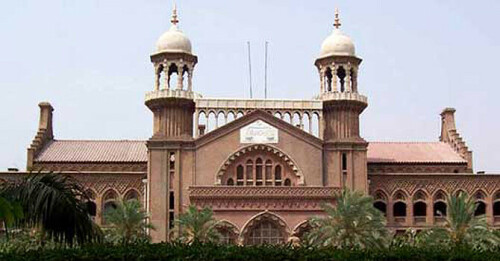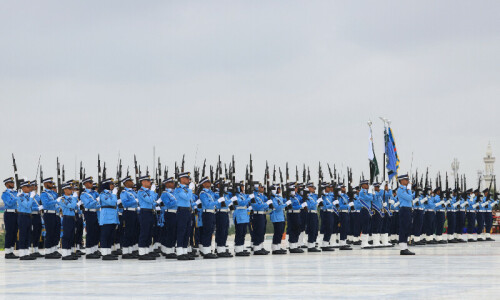In between these two stirring contests, I had the misfortune of reading about the Pakistan team's dismal performance in Sri Lanka where we repeatedly snatched defeat from the jaws of victory. Time and again, our team squandered commanding positions to subside into quivering heaps of jelly. As a result of these pathetic collapses, Sri Lanka, a team we had beaten convincingly in the T20 World Cup final just weeks ago, thrashed us in both the Test and the one-day series.
Indeed, for some time now, the Pakistani team has not fared well in Test cricket, and currently ranks sixth among the nine major cricketing nations. It may well sink further in the rankings as it is unlikely to enjoy the advantage of hosting matches any time soon. After the terrorist attack against the Sri Lankan team earlier this year, it would be a brave band of cricketers who visit us.
But apart from security, many other factors are at work to ensure that our performance, not just in cricket, but in all other sports, continues to decline. Indeed, it is odd that we demand standards of our sportsmen that we do not of our leaders, businessmen, bureaucrats, soldiers, teachers, cops or any other category of professionals.
Surely it is illogical to expect excellence in the field of sports and not in others. Given the virtual collapse of standards in every sector of public life, the fact that we still manage to have a few outstanding cricketers like Mohammed Yusuf and Younus Khan should be a matter of celebration. But to also demand that the team play well over five days is, I fear, expecting far too much.
To begin with, PCB, the cricket board charged with organising the sport, is largely composed of government nominees whose basic interest is to enjoy the perks as long as they can. Few of them have the expertise and the dedication required to lift standards and provide the infrastructure needed for the development of the sport at the grassroots.
Cricket, like all sports today, has evolved into a highly technical activity in which fitness, mental toughness and skill all play a major part. To impart these, coaching is now conducted at a scientific level that was unknown a generation ago. Unfortunately, our coaches still stick to traditional methods and whenever the PCB has imported a foreign coach, there has been constant carping over the expense. And of course, few of our players speak English any more, so a foreign coach cannot communicate effectively.
Then there is the influence of religious extremism in the dressing room as the number of beards increases, cricket becomes the second priority. One Australian coach complained that in the middle of team meetings or practice sessions, players would suddenly announce they were going to pray.
This is just another manifestation of the fact that no activity or organisation can be insulated from social influences. So when players see how inefficiently the whole country is being run, subconsciously they see little point in training hard to maintain peak fitness.
Cricket is about individual excellence as well as team spirit. But all too often, Pakistani players play the game for their personal glory, and put the team second. Shoaib Akhtar is a perfect example pampered over the years by the PCB, he has probably spent more time in medical clinics than at the nets. In a recent interview, he boasted that he was the only bowler in the world to have bowled at 100 mph. Perhaps he forgot that the team needed him to take wickets, and not break world records.
Over the years, the Pakistan team has become a laughing stock in the cricketing world for its constant feuds. Hardly a week goes past without some player going off in a sulk, or the current captain being publicly humiliated and replaced. Squabbles between the PCB and players are the daily stuff of our sports pages.
While watching the Ashes this summer, I was once again reminded of what Test cricket is all about
discipline, leadership, strategy, consistency, tenacity, teamwork and a burning desire to win. Even though Australia scored more runs and took more wickets over the series, England still managed to win because they took wickets and scored runs when it mattered most.
Although we have the talent and the skills in abundance, we no longer possess the other ingredients necessary for success. This is as true for cricket as it is for any other sport, or, indeed, for life in general. So while we can win a Twenty20 match and even a tournament with our flair and flamboyance, we can no longer maintain this winning performance over five days.
This, I fear, is as true for the whole country as it is for our cricket team. We are forever looking for excuses for our poor performance and blaming others when we do badly. Instead of looking inwards and conducting a critique of our own mistakes, we play the victim because it's so much easier.
At the final Test at the Oval, Australia had been the victims of several poor umpiring decisions, but after the match, Ponting faced the cameras and accepted defeat gracefully, saying his team had lost to a better side. Not once did he refer to the umpiring.
Although a decent education is hardly a prerequisite to becoming a good sportsman, it does help in inculcating certain values that are useful on the field.
Our government schools, where most of our professional cricketers have studied, are now so awful that their graduates are lucky to be literate when they emerge. So players cannot learn about the long history and rich tradition of the sport that gives them fame and fortune. Without wishing to sound patronising, I am embarrassed when I see our players being interviewed in English abroad. They would be better off speaking through an interpreter.
So while Pakistan may be the champion of a flamboyant style of cricket, I fear it will continue to languish near the bottom of the international rankings in the traditional form of the sport.
irfan.husain@gmail.com












































Dear visitor, the comments section is undergoing an overhaul and will return soon.